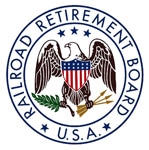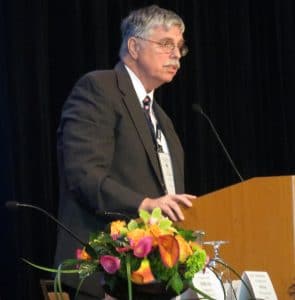Alaska Railroad could get an extension into Canada, pending the approval of a permit from President Donald Trump, reports the Anchorage Daily News.
In the proposed project by the Alberta to Alaska Railway Development Corporation (A2A), 1,700 miles of track would be built in a plan to make it easier for goods to travel to and from Asia by linking the Canadian rail network to Alaska’s Port MacKenzie. If approved, A2A plans to raise the money needed for the $17 billion project and does not intend to seek any state funding.
The plan’s proponents say that the route would cut two days of transport time for goods to Asia and relieve congestion at ports on the U.S.’s West Coast, the Daily News reported.
A presidential permit is required for all cross-border infrastructure.
Click here to read more from the Anchorage Daily News.
Author: amyr
In a win for labor, New Mexico Gov. Michelle Lujan Grisham signed House Bill 85 into law, prohibiting counties and other local entities from enacting their own right-to-work laws.
Sponsored by Democratic Reps. Daymon Ely and Andrea Romero, the bill-turned-law invalidates right-to-work resolutions passed in 10 counties and one village.
“The passage of HB 85 Union Security Agreements is a victory for all working families in New Mexico,” the New Mexico Federation of Labor, AFL-CIO said in a press release. “Deceptive and divisive ‘right to work’ laws have no place in our state.
“With HB 85 now signed into law, we hope county and municipal officials will focus on actually creating good jobs, promoting healthy communities, and making our state a better place to live for all working families.”
Click here to read more about the law from NM Political Report.

The board recently combined their traditional informational conference program with their pre-retirement seminars to ensure their outreach efforts fulfills current needs. Henceforth, these seminars are open for those nearing retirement, all local union officers, auxiliary members and spouses.
While most of the program focuses on various aspects of Railroad Retirement benefits, each seminar closes with a brief presentation on railroad unemployment and sickness benefits to help prepare union officers for sharing reliable information with their members.
To RSVP for one of the seminars, visit rrb.gov/prs and select your local seminar from the scheduled list, enter your information and hit submit. To RSVP on paper, use the PDF registration form posted at the bottom of the pre-retirement seminar webpage and print it and complete. Then mail or fax your completed form to your local field office. Contact information for each office hosting a seminar can be found by clicking here. Online registration will be available approximately 60 days before the date of each seminar. Registration will close for any seminar that reaches capacity.
Unless otherwise noted, seminars begin at 8:30 a.m. and are held over the course of four hours. Doors open 30 minutes prior to start time. Security screening will be required for seminars hosted inside any federal buildings and photo ID will be required. No weapons are permitted in federal buildings. Attendees are encouraged to bring original records (or certified copies) of documents required in order to file a Railroad Retirement application (such as proof of age, marriage or military service) along with an additional copy of each item to leave with field service staff. Please let the RRB know if you have signed up for a seminar and are unable to attend.
Schedule March – June 2019:
- March 22: George H. Fallon Federal Building. 31 Hopkins Plaza, Room G-33 (ground level), Baltimore, Md.*
- March 22: West Covina Library, 1601 West Covina Parkway, West Covina, Calif.* (9:00 a.m. start time)
- March 29: Birmingham/Jefferson Convention Complex, 2100 Richard Arrington Jr. Boulevard North, East Meeting Rooms D/E, Birmingham, Ala.*
- March 29: Maidu Community Center, 1550 Maidu Drive, Roseville, Calif.
- April 5: Country Inn & Suites, 4500 Circle 75 Parkway, Atlanta, Ga.
- April 5: Hilton Garden Inn (Richmond Airport), 441 International Center Drive, Sandston, Va.
- April 12: Ronald V Dellums Federal Building, 1301 Clay Street – North Tower, 5th Floor (Room H), Oakland, Calif.*
- April 12: Drury Inn & Suites, St Louis Forest Park, 2111 Sulphur Avenue, St. Louis, Mo.
- April 26: Holiday Inn Plainview – Long Island, 215 Sunnyside Boulevard, Plainview, N.Y.
- April 26: Patrick V McNamara Federal Building, 477 Michigan Avenue, Suite 1180, Detroit, Mich.*
- May 3: Hilton Garden Inn, 2465 Grant Avenue, Billings, Mont.
- May 3: Richard Bolling Federal Building, 601 East 12th Street, Room G-41 (Dogwood Conference Room), Kansas City, Mo.
- May 10: Holiday Inn Denver Lakewood, 7390 West Hampden Avenue, Lakewood, Colo.
- May 17: Sheet Metal Workers Local 33, 12515 Corporate Drive, Parma, Ohio
- May 17: Jacob K Javits Federal Building, 26 Federal Plaza, 6th Floor Conference Room, New York, N.Y.*
- June 7: Hilton Garden Inn Portland Airport, 12048 NE Airport Way, Portland, Ore.
- June 7: La Quinta Inn & Suites Indianapolis S, 5120 Victory Dr., Indianapolis, Ind.
- June 14: Eugene T. Mahoney State Park, 28500 West Park Hwy, Ashland, Neb.*
- June 14: Comfort Inn & Suites Presidential, 707 Interstate 30, Little Rock, Ark.
- June 21: Post Office Federal Bldg, 657 Second Ave. N Room 319, Fargo, N.D.
- June 21: Fritz G. Lanham Federal Bldg, 819 Taylor St., Room 4Al4H, Fort Worth, Texas
- June 28: Holiday Inn Huntington-Barboursville, 3551 Rt. 60 East, Barboursville, W.Va.
- June 28: Tinley Park Convention Center, 18451 Convention Center Drive, Tinley Park, Ill.
There is a parking fee required for seminars marked with an *.
In a victory for safety, the Federal Railroad Administration (FRA) denied a request by Kansas City Southern Railroad (KCSR) to outsource brake inspections to Mexico, the AFL-CIO’s Transportation Trades Department (TTD) reports.
“In its decision, the FRA correctly told KCSR that their request – which TTD and our rail unions strongly opposed – was ‘not in the public interest or consistent with railroad safety.’ We could not agree more,” said TTD President Larry I. Willis.
In 2008, the FRA granted KCSR conditional regulatory relief of 49 C.F.R. § 232.205 (a)(1) and 49 C.F.R. Part 215. In lieu of conducting the required inspections at the International Bridge interchange, the FRA allowed KCSR to move freight cars received in interchange from KCSR’s Mexican operations across the U.S./Mexico border to KCSR’s yard in Laredo without performing a full Class I brake test at the border. One of the conditions set by the FRA was that KCSR must perform Class III brake tests (set and release) at the International Bridge interchange. In their petition to the FRA, dated May 31, 2018, KCSR requested that the Class III brake tests be performed at their Mexican Nuevo Laredo and Sanchez Yards instead of at the interchange.
In their request, KCSR maintained that it would be safer to perform the tests at the Mexican yards due to vandalism while the trains are stopped and blocked Mexican crossings, however, KCSR offered no specific evidence demonstrating any safety or security risks of performing the Class III tests at the interchange.
“FRA cannot approve KCSR’s request to move the test to its affiliate KCSM’s (Kansas City Southern de México Railway) yards 9 miles across the border within Mexico. …The Board is denying KCSR’s May 31, 2018, request to modify the existing relief in this docket because KCSR has not demonstrated that a modification is in the public interest or consistent with railroad safety,” the FRA’s Robert C. Lauby, associate administrator for railroad safety, said in his response letter to KCSR, dated March 8, 2019.
“The FRA’s decision is a step in the right direction, but it is not enough,” Willis said. “Last year, the FRA granted KCSR permission to operate trains with crews from Mexico to Laredo, nine miles across the border. This decision was made without input from the public or any guarantee U.S. safety standards are being met.”
SMART TD and BLET sent a joint letter to U.S. DOT opposing the decision to allow KCSR to operate Mexican train crews within the United States.
Click here for related documents, including KCSR’s 2007 and 2018 requests and FRA’s responses.
Click here for the full press release from the TTD.
Click here to read about SMART TD’s opposition to Mexican crews operating inside the U.S.

1. What were the study’s findings on the life expectancy of retired male railroaders?
The most recent data reflected a continued improvement in longevity. Using data through 2016, the study indicated that, on the average, a male railroader retiring at age 60 can be expected to live another 22.5 years, or 270 months. Studies done three, six and nine years ago indicated life expectancies of 22.4, 21.9 and 21.3 years, respectively, for this category of beneficiary. The study also indicated that a male railroader retiring at age 62 can be expected to live another 20.8 years (approximately 250 months), while the previous three studies indicated life expectancies of 20.7, 20.1 and 19.6 years, respectively. A male railroader retiring at age 65 can be expected to live another 18.3 years (approximately 220 months). The previous studies indicated life expectancies of 18.2, 17.7 and 17.1 years, respectively, for this category of beneficiary.
2. How did these life expectancy figures compare to those of disabled annuitants?
As would be expected, disabled annuitants have a shorter average life expectancy than those who retire based on age. At age 60, a disabled railroader has an average life expectancy of 18 years, or 4.5 years less than a nondisabled male annuitant of the same age. Studies done three, six and nine years ago indicated life expectancies of 17.7, 17.2 and 16.4 years, respectively, for this category of beneficiary. Nonetheless, the difference in life expectancy at age 60 between disabled annuitants and annuitants who retire based on age has remained relatively stable, ranging between 4.5 and 4.9 years.
3. Are women still living longer than men?
In general, women still live longer than men. This is shown both in the Railroad Retirement Board’s life expectancy studies of male and female annuitants and by other studies of the general United States population.
For example, at age 60 a retired female railroader is expected on the average to live 25.6 years, 3.1 years longer than a retired male railroader of the same age; and at age 65, a retired female railroader is expected on the average to live 21.1 years, 2.8 years longer than her male counterpart. Spouses and widows age 65 have average life expectancies of 21 years and 19 years, respectively.
4. Can individuals use life expectancy figures to predict how long they will live?
Life expectancy figures are averages for large groups of people. Any particular individual’s lifetime may be much longer or shorter than the life expectancy of his or her age and group.
According to the study, from a group of 1,000 retired male employees at age 65, 933 will live at least 5 years, 822 at least 10 years, 658 at least 15 years and 448 at least 20 years. Of female age annuitants at age 65, 578 will be alive 20 years later.
5. Where can I access the Railroad Retirement Board’s longevity study?
The entire longevity study is available on the RRB’s website, RRB.gov, under the Financial and Reporting tab (Financial, Actuarial and Statistical).
Amtrak announced today that former President and CEO Joseph Boardman, 70, died today after having a stroke March 5:
“We are deeply saddened to learn of the passing of Joe Boardman.”
“Joe, during his tenure as FRA administrator, Amtrak board member and Amtrak president & CEO, was a tireless advocate for passenger rail and the nation’s mobility. During his eight years at the helm, Joe helped the company make significant progress in reducing our debt, improving our infrastructure and raising our cost recovery performance.”
“He leaves a lasting legacy that includes public service and making passenger rail transportation better for millions of people.”
Click here to read tributes from Trains Magazine and Railway Age.
Relatives and friends may call at the Barry Funeral Home, 807 W. Chestnut St., Rome, NY 13440 on Thursday, March 14 from 2 to 4 p.m. and from 6 to 8 p.m. A Mass of Christian Burial will take place at 11 a.m. on Friday, March 15 at St. Paul’s Church, 1807 Bedford St., Rome, NY 13440. Interment will be at St. Patrick’s Cemetery, Route 285, Taberg, NY 13471 and will take place in the spring.
In lieu of flowers, contributions may be made in Boardman’s memory to Unity Acres, 2290 County Route 2, P.O. Box 153, Orwell, NY 13426; Health Friends, 1119 Elm St., Utica, NY 13501; or to the Epilepsy Foundation.
To read Boardman’s official obituary or to leave condolences, click here.
New Jersey Transit (NJT) is claiming sovereign immunity after a victory in the case Karns v. Shanahan 18 months ago, which upheld NJT’s argument that it is a part of the state of New Jersey, not an independent agency, and as such is not responsible for employee injuries.
In a second, unrelated case in the 3rd Circuit Court of Appeals, an $824,000 ruling in favor of an injured NJT worker was overturned using that argument in late January. As a result, the state’s attorney general has requested that many workers’ injury lawsuits against the carrier be dismissed.
Representatives from SMART Transportation Division Designated Legal Counsel, including Rail Safety Coordinator Larry Mann, say that these rulings create a dangerous precedent and effectively nullify federal protections that all other railroad workers fall under.
NJT argues that it falls under the 11th Amendment of the U.S. Constitution and has sovereign immunity, meaning that its workers are entitled to the state’s workers’ compensation program.
However, Mann told the Courier Post that this is not the case, citing a U.S. Supreme Court ruling in 1917 where it was determined that railroad workers have no protections under state workers’ compensation laws because the Federal Employers Liability Act (FELA) preempts state laws.
“We’re not asking for anything new or novel,” SMART TD Designated Legal Counsel Robert Myers said in a hearing of the state’s Assembly Transportation and Independent Authorities Committee last week. “It’s the same thing as every other railroad in the country, and it’s all about safety.”
Assemblyman Dan Benson, the chairman of the Assembly Transportation and Independent Authorities Committee, has sponsored a bill (A4689) that would waive NJT’s claim to sovereign immunity. The bill is still in committee, but co-sponsors told NJTV News that they plan to fast-track it.
“It’s our responsibility here on the Transportation Committee and as public servants to make sure that we’re not leaving our workers in an unsafe environment without protections, and for things that extend to the general public,” Benson said in a committee hearing.
“It is vitally important that this legislation be enacted. Otherwise, there will be a crisis impacting all railroad employees injured or killed in this state,” SMART TD N.J. State Legislative Director Ron Sabol said at the hearing.
Click here to read more from the Courier Post or from NJTV News.

“Almost every trespasser death or injury is preventable and FRA is working to intensify our efforts,” said FRA Administrator Ronald L. Batory. “Now that we have examined current data on contributing factors of the problem, we are seeking to energize our state and local partners to implement solutions and save lives.”
In the report, the FRA examined trespasser casualties over a four-year period (Nov. 2013 to Oct. 2017) and identified the top 10 counties in the United States where the most pedestrian trespasser casualties occurred (Los Angeles, Calif.; Cook (Chicago), Ill.; San Bernardino, Calif.; Harris (Houston), Texas; Broward, Fla.; Palm Beach, Fla.; Fresno, Calif.; Riverside, Calif.; Contra Costa, Calif.; San Diego, Calif.). The report shows that, excluding suicides, 4,242 pedestrians were killed or injured while trespassing on railroad property nationwide during this time period.
Preventing trespasser casualties and injuries is a high priority for FRA as part of the Department’s safety mission. In October 2018, FRA convened a Trespasser & Grade Crossing Fatality Prevention Summit at its headquarters in Washington, DC. Secretary Chao, Administrator Batory, representatives from other DOT modal administrations, and key stakeholders from the rail industry, law enforcement, and the navigation industry attended the meeting to discuss strategies to reduce grade crossing and trespasser fatalities, as well as to solicit ideas to develop and implement a comprehensive national plan and strategy. FRA looks forward to coordinating and working with all stakeholders to prevent trespassing incidents, and this report is an important step forward in the continued effort to improve rail safety.
FRA’s national strategy to prevent trespassing on railroad property includes four strategic focus areas: data gathering and analysis, community site visits, funding and partnerships with stakeholders.
Data gathering and analysis of trespass incidents and close-calls will enable FRA to target its resources to trespassing “hot spots.” Conducting community site visits will help FRA to learn more about the specific local circumstances that contribute to trespassing and work with partners to help implement and evaluate targeted mitigation strategies. Requesting and providing funding will support community-based efforts to deter trespassing. Finally, building strong and enduring partnerships with communities, law enforcement, railroads and other organizations with a shared interest in saving lives will enable FRA to leverage and concentrate available resources, expertise and local knowledge to combat trespassing.
Short term targets for success include stakeholder engagement and implementation of strategies that save lives at trespassing “hot spots.” Over the long term, FRA will measure the success of this national strategy by how much trespassing incidents and casualties are reduced nationwide.
To access the full report, click here.

Designed for railroad employees and spouses planning to retire, the pre-retirement seminars the RRB offers familiarize attendees with the retirement benefits available to them, and also guide them through the application process. Sponsored by the Office of the Labor Member, seminars are held at a number of locations annually.
RRB field service representatives conduct each pre-retirement seminar using a PowerPoint slide presentation covering the various benefits provided to retired rail workers and their families. Attendees receive a program booklet of this presentation with detailed side notes and fact sheets. In addition to the program booklet, seminar attendees receive a retirement kit full of informational handouts and other helpful materials. Online and downloadable versions of items included with seminar kits are available on the RRB’s educational materials webpage.
Registration is required to ensure accommodations and materials for all attendees.
- Unless otherwise noted, pre-retirement seminars begin at 8:30 a.m. and are held over the course of four hours. (Doors open for attendees 30 minutes before the seminar start time.)
- Security screening is required for seminars hosted inside any federal buildings. Bring a current, valid photo ID (issued by state or federal government); no weapons are permitted.
- Parking fee for seminars marked with *.
- Attendees are encouraged to bring original records (or certified copies) of documents required in order to file a Railroad Retirement application (such as proof of age, marriage or military service), along with an additional copy of each item to leave with field service staff.
- Please inform the RRB if you sign up for a seminar and become unable to attend.
Can’t attend a seminar, but still interested in learning about the Railroad Retirement program and application process? Please contact the RRB via the Field Office Locator or by calling toll-free (1-877-772-5772) for pre-retirement information or to schedule an appointment for individual retirement counseling at your local RRB field office.
Here are the scheduled dates:
- March 22, 2019: George H. Fallon Federal Building, 31 Hopkins Plaza, Room G-33 (ground level), Baltimore, Maryland*
- March 22, 2019: West Covina Library, 1601 West Covina Parkway, West Covina, California* (9 a.m. start time)
- March 29, 2019: Birmingham/Jefferson Convention Complex, 2100 Richard Arrington Jr. Boulevard North, East Meeting Rooms D/E, Birmingham, Alabama*
- March 29, 2019: Maidu Community Center, 1550 Maidu Drive, Roseville, California
- April 5, 2019: Country Inn & Suites, 4500 Circle 75 Parkway, Atlanta, Georgia
- April 5, 2019: Hilton Garden Inn (Richmond Airport), 441 International Center Drive, Sandston, Virginia
- April 12, 2019: Ronald V Dellums Federal Building, 1301 Clay Street – North Tower, 5th Floor (Room H), Oakland, California*
- April 12, 2019: Drury Inn & Suites, St Louis Forest Park, 2111 Sulphur Avenue, St Louis, Missouri
Click here to register online.
Click here to print a registration form.
The state of Colorado is one step closer to having a two-person crew law on the books. After a third reading of House Bill 1034 (HB19-1034), a vote was taken on the house floor Feb. 5, and the bill passed with a vote of 39 – 23.
“We are glad the Colorado House of Representatives care about railroad worker safety and community safety for the citizens of the state,” Colorado State Legislative Director Carl Smith said. “We are confident that the state Senate will hold the same beliefs.”
On Jan. 9, the Colorado State Legislative Board released the results of a survey conducted by DFM Research on behalf of SMART TD showing that Coloradans held strong support for two-person crews. The survey, conducted Jan. 2 – 5, 2019, asked 550 random Colorado residents about issues centered on railroad safety. The results showed that 77 percent of Coloradans said that they would vote in favor of two-person crews if given the chance.
Click here to follow the progress of HB19-1034.

